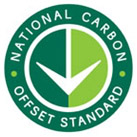
The Standard
The National Carbon Offset Standard sets requirements for becoming carbon neutral. These are based on a rigorous and transparent framework, supported by international standards and tailored to the Australian context. Meeting the requirements of the Standard is essential for certification under the Carbon Neutral Program. The Standard:
- sets minimum requirements for calculating, auditing and offsetting the carbon account of an organisation, product, service or event to voluntarily achieve carbon neutrality; and
- provides guidance on what is a genuine offset unit.
Requirements of the National Carbon Offset Standard
Carbon neutral claims made against the Standard must meet several core requirements.
- Credible greenhouse gas measurement techniques, which ensure the emissions and emissions sources covered by a claim of carbon neutrality can be readily understood and evaluated by others.
- Independent auditing every second year, to ensure emissions have been accurately measured, offset and reported.
- A reasonable attempt has been made to reduce in-house emissions before using offset credits.
- Genuine offsets units have been purchased and cancelled to compensate for all emissions associated with the claim.
- Activities and achievements related to the carbon neutral claim are transparently reported.
The Australian Government Department of the Environment and Energy is the only entity able to certify that an activity is carbon neutral against the rules of the Standard. Certified organisations can use the carbon neutral certification trade mark to showcase their carbon neutral status.
Pangolin Associates first certified carbon neutral environmental firm
Carbon and energy management firm, Pangolin Associates, is one of these. Pangolin has just earned its own NCOS certification. This is the rigorous National Carbon Offset Standard, the only Australian Government-approved carbon neutral certification.
Pangolin is also a founding member of B Corp in Australia, and the first B Corporation to become NCOS certified. B Corp is a global initiative that promotes the highest standards of social and environmental accountability.
Begun in 2010, Pangolin’s founding directors built the company, its structure and guiding principals, on carbon neutrality. Managing Director, Iain Smale, points to a 3-step process. He says, “We practice the advice we give to our clients. We measure our carbon emissions annually; implement sustainable processes and policies that include our supply chain; and offset emissions that we cannot eliminate with certified carbon credits.” From 2010 Pangolin’s carbon credit purchases have supported a wind power project in Tamil Nadu, India.
More specifically Smale points out Pangolin’s extremely low resource consumption, such as a near-zero paper workplace. There are also ongoing efforts to become more energy efficient. The Adelaide office, for example, now enjoys 120 solar photo voltaic panels, efficient LED lighting, and an HVAC monitoring system.
Pangolin’s team is well versed in the certified carbon neutral scheme. They provide NCOS services for their clients: greenhouse gas assessments, third party verifications, and carbon offsetting management. To date Pangolin has worked with about one third of NCOS certified organisations.
Ross Hill Wine Group, a winery based in Orange NSW, is the most recent success for Pangolin. Impressively, Ross Hill has achieved carbon neutral certification for both its operations and products. It is also the first Australian winery to earn the NCOS certification, which has already opened doors for the winery in the corporate sector. As Iain Smale says, “It’s a great example of small business preparing for the future, and showing effective climate change leadership in their industry.” (Source: Eco-Business)